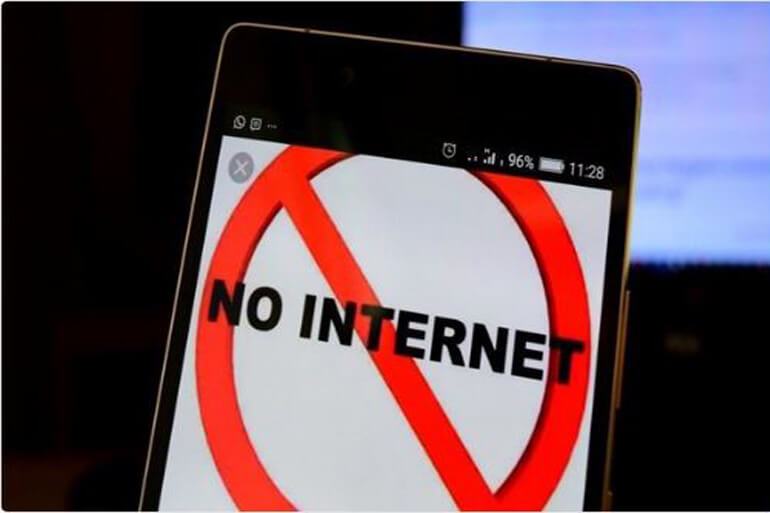Two days after shutting down social media networks in Senegal, the authorities have blocked the entire internet grid on mobile devices, in a continuing infringement on the digital rights of Senegalese and their right to access information. The government claimed that the measure was to control the spreading of “hateful and subversive” messages through social media platforms which were disrupted on June 1, 2023. Senegal has experienced a long-lasting succession of human rights violations. Long touted as a beacon of democracy in West Africa, the country’s reputation as a stable democracy is almost at an all-time low.
“Due to the dissemination of hateful and subversive messages in a context of disturbance of public order in certain localities of the national territory, mobile data internet is temporarily suspended during certain time slots. Telephone operators are required to comply with the requisitions issued”, the Ministry of Communication, Telecommunications and the Digital Economy stated on June 4, 2023.
Senegalese authorities did not provide specific details on the areas affected by the recent internet shutdown. However, on June 4, and even on June 5, 2023, residents of the capital Dakar reported difficulties accessing the internet without a Wi-Fi connection.
Netblocks’ traffic data showed that mobile internet access has been suspended in the country. The internet monitor platform equally revealed that the measure followed a pattern of daily curfew-style mobile internet shutdowns.
The West African country has experienced one of its deadliest bouts of civil unrest in decades. Sixteen (16) people have died (the government announced 9 deaths on the first day), with hundreds being injured amidst mass arrests since June 1, 2023. The unrest followed the sentencing of opposition leader Ousmane Sonko to two years in prison on June 1, 2023, for “corrupting youth” after being acquitted of rape. This sentence effectively bars him from taking part in the upcoming presidential elections in 2024.
Demonstrators are also reportedly outraged by President Macky Sall’s alleged desire to seek a third term in office, which many consider unconstitutional.
The mobile internet shutdown occurred after a series of restrictions on the rights to freedom of expression and access to information. On June 1, 2023, state authorities heavily restricted access to several social media networks including Facebook, Twitter, WhatsApp, Instagram, YouTube, and Telegram. Some citizens resorted to Virtual Private Network (VPN) to overcome the restriction. In addition to the social media restriction, the authorities have cut the signal of the television channel Walf Tv for allegedly showing continuous images of the demonstrations.
Access to the Internet has become vital in almost all aspects of life. Mobile internet disruptions, therefore, represent a serious infringement on digital rights, access to information, freedom of expression and freedom of assembly. With an internet penetration above 58% in Senegal in January 2023, these disruptions affect millions of users. Furthermore, Senegal loses an estimated amount of $8 million daily to nationwide internet shutdowns, according to Netblocks’ Cost of Shutdown Tool.
The Media Foundation for West Africa (MFWA) strongly condemns the multiple violations of the rights of citizens to access information and communicate via social media. It is unacceptable for citizens to be denied internet access at a critical time when they need to be informed about what is going on and to keep in touch with their relatives and friends. We urge the government to unconditionally restore mobile internet connection in Senegal.





